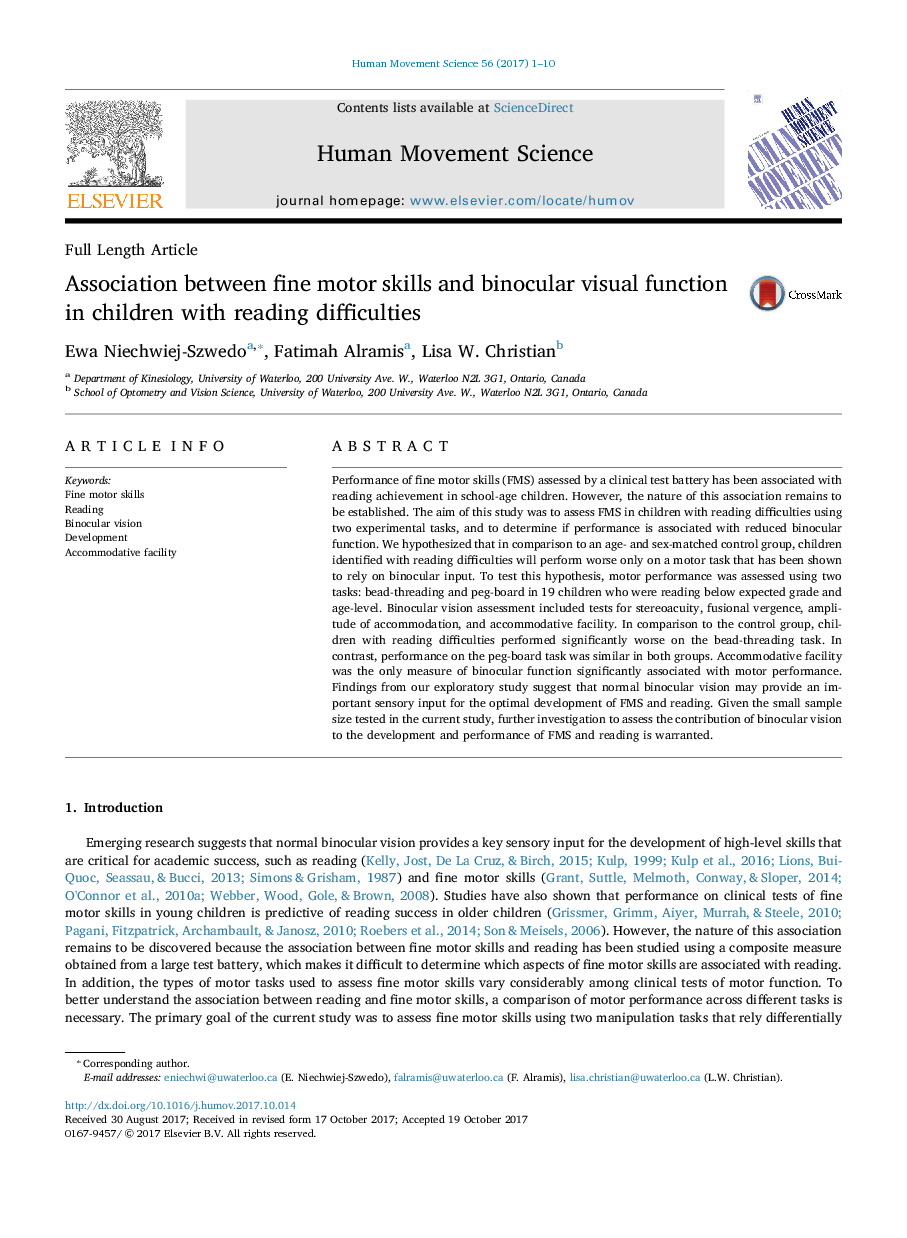ترجمه فارسی عنوان مقاله
ارتباط بین مهارت های حرکتی خوب و عملکرد تصویری دو طرفه در کودکان با مشکلات خواندن
عنوان انگلیسی
Association between fine motor skills and binocular visual function in children with reading difficulties
| کد مقاله | سال انتشار | تعداد صفحات مقاله انگلیسی |
|---|---|---|
| 154961 | 2017 | 10 صفحه PDF |
منبع

Publisher : Elsevier - Science Direct (الزویر - ساینس دایرکت)
Journal : Human Movement Science, Volume 56, Part B, December 2017, Pages 1-10
ترجمه کلمات کلیدی
مهارت های حرکتی زیبا خواندن، بینایی دوچشمی، توسعه، تسهیلات اجباری،
کلمات کلیدی انگلیسی
Fine motor skills; Reading; Binocular vision; Development; Accommodative facility;

